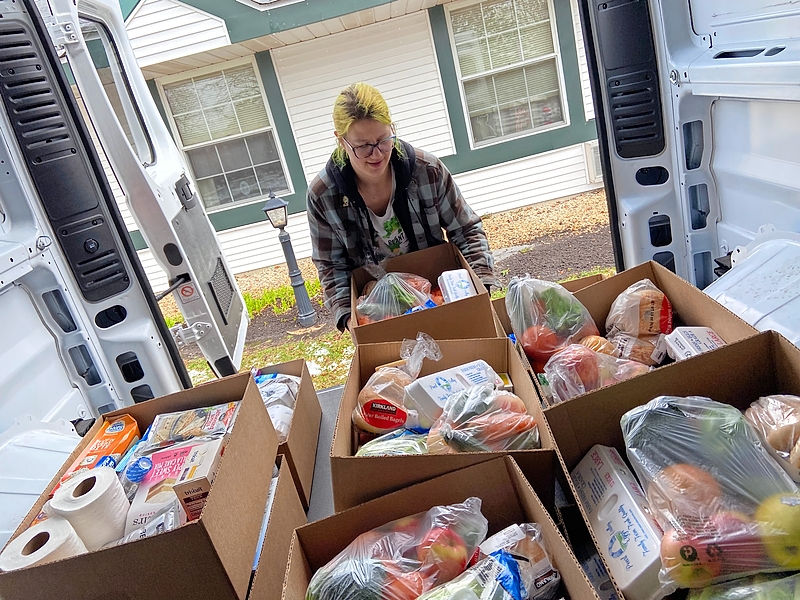Meeting Needs
By Naperville Magazine
February 2021 View more Community

By Dana Moran and Anne Stern
The coronavirus pandemic changed how we live and work—essentially overnight. For Loaves & Fishes Community Services, it was a perfect storm of market forces: Demand for food grew dramatically, and food supply decreased due to supply chain interruptions. On top of that, due to COVID-19 social distancing requirements, the labor force had to be reduced by 80 percent, and the in-person shopping model was no longer feasible.
Loaves & Fishes did more than simply adapt; it transformed operations to offer curbside pickup, expanded its market, and increased service to more than 1,000 families per week, while remaining true to its mission of providing healthy meals.
Pre-COVID, there were typically dozens shopping, and often 30 to 40 people in the waiting room, in addition to 50 to 75 volunteers and employees in the building. Within days of the shelter-in-place order in Illinois, Loaves & Fishes shifted to a drive-up model. Each family receives 100 to 150 pounds of food, including fresh produce, dairy, dry goods, and meat.
Coincidentally, Loaves & Fishes was actively working during this period with Booth Alumni Nonprofit Consultants, an alumni club at the University of Chicago Booth School of Business. Our BANC project team wrapped up its work in April 2020, just as the COVID-19 pandemic was hitting its peak in Illinois. While certainly not anticipated, the foundational strategy and analytic work by the BANC team helped support rapid decision making, based on sound and meaningful insights.
To optimize both the operations and scalability of our model, our BANC team recommended a hub-and-spoke system. A new distribution center will allow Loaves & Fishes to continue to utilize its existing volunteer base and food recovery routes, minimize transit time to new spokes in neighboring cities, and provide the space to reach more people through new channels, such as online ordering.
Impact in aurora
To support its new hub-and-spoke distribution model, Loaves & Fishes—the state’s largest food pantry—has acquired a 30,000-square-foot facility that will allow the nonprofit to offer more fresh food to the clients it serves, says CEO Mike Havala.
“We have stats on poverty in the four [suburban] counties and it’s pretty stark—one in five people—and we expect those numbers to get worse,” says Nancy Wiersum, vice president of advancement at Loaves & Fishes. “Food is such a basic need,” says Wiersum, “and if people can’t provide that for their family, it’s really disheartening.”
To fund the $3.1 million project, the nonprofit has launched Building Blocks for Lasting Impact campaign. The additional refrigeration, freezer, and clean room space will substantially increase the number of families served, expand its geographic service area, increase the healthy food offered, and provide an omnichannel distribution site for clients.
“People can buy naming rights or a figurative building block,” says Wiersum, “to be installed on the Lasting Impact Wall of Honor.” The Aurora center is expected to open in June; to donate, visit loaves-fishes.org.
Photos courtesy Loaves & Fishes





